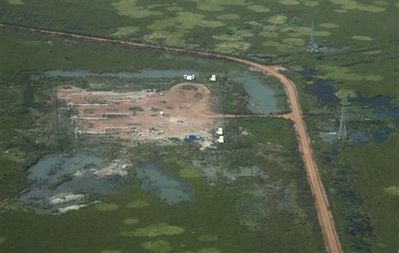Sudanese pound drops 12% against US dollar as Juba cuts oil exports
January 8, 2014 (KHARTOUM) – The ongoing conflict in South Sudan took a toll on the Sudanese currency which witnessed a sharp drop in the black market against the US dollar.

The official exchange rate is around 5.7 pounds to the dollar.
This is the second time since last June that the US dollar’s exchange rate in the parallel market surpasses eight pounds. That was when president Omer Hassan al-Bashir announced that his government will not allow South Sudan to use its facilities to export oil to the international markets.
Khartoum gets a fixed fee from Juba for every barrel of oil exported through its pipelines which helps it cover a portion of its budget hole and more importantly provides a stable source of hard currency needed to import food.
So far oil production in South Sudan has not been significantly impacted by the fighting except production fields in Unity state which are now under the control of rebels loyal to former vice president Riek Machar.
Oil companies in Unity state from China and India evacuated their workers and made sure to shut down the oilfields there which are believed to have been producing around 45,000 bpd.
Yesterday, the Sudanese oil Minister Makkawi Mohammed Awad affirmed that flow of crude from Adar Yeil’s oil field in Upper Nile state is normal adding that production there increased from 165,000 barrels per day (bpd) to 200,000.
But on Wednesday, Reuters quoted oil industry sources as saying that South Sudan’s exports of heavy sweet Dar Blend will drop to 4.6 million barrels, or about 148,000 bpd, in January in a revised loading programme, one source said, down about 21 percent from 187,000 bpd originally planned.
Dar Blend is produced in the Upper Nile state, in Blocks 3 and 7 that are operated by the Petrodar Operating Company.
Two of the seven cargoes that had been scheduled for loading in January have been deferred to February, he told Reuters.
Exports of Nile Blend, another Sudanese crude, have also dropped after production was shut in South Sudan’s Unity state last month. The grade is also produced in Sudan where output is stable.
In a revised loading programme seen by Reuters, two Nile Blend cargoes will load in January, down from three originally, the sources said. These include a cargo that was scheduled to load in December.
Sudanese officials downplayed any adverse impact of complete oil shutdown in South Sudan despite transit fees forming an integral part of the 2014 budget.
The finance minister Badr al-Deen Mahmoud has recently said that they are to receive a loan which should help it cover purchases of basic goods. He gave no details on source or amount.
(ST)
